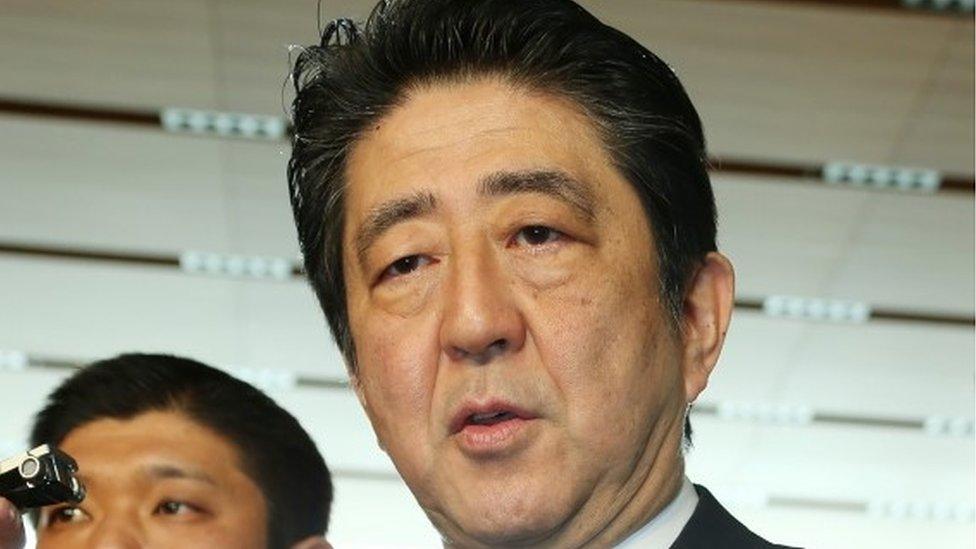Selling Abenomics to the G7
- Published

Japan's Prime Minister Shinzo Abe had one very important mission at this year's G7 summit: sell his brand of economic policies "Abenomics" to the world, and convince world leaders that they should all agree to spend more money in their economies to avert the next crisis.
He failed.
Yes, Mr Abe did get an agreement from the G7 that global growth is an urgent priority, and that risks remain - in particular a British vote to leave the European Union, which will be decided in a referendum next month.
But what he didn't get was a joint action plan that endorsed his view that increasing government spending is the best way out of a slowdown.
Germany and the UK were never going to agree that, given that they believe in austerity as the way forward.
So that's why in the body of the final declaration you find a rather long and complicated sentence about fixing global growth, which in a roundabout way basically says that each country will adopt its own flexible approach to fiscal stimulus.
Or each man (and in Germany's case woman) for himself, basically.
In his closing speech at the G7 today though, you'd never think that Mr Abe was a man defeated.
Instead, he talked of how the G7 had agreed to deploy "Abenomics" throughout the world (surprising how that sentence didn't make it into the communique) and also agreed to the total mobilisation of all possible policies - something he said Japan is determined to do.
Why is that important? Well, Mr Abe was hoping to get the international backing he needs to delay the much-anticipated consumption tax due to be implemented in 2017.
There are concerns that a consumption tax would hit spending - and that's something Mr Abe needs to ensure goes up so that prices start to move up too.
He had previously said the only two things that would cause him to delay a consumption tax next year are a natural disaster and a Lehman style shock to the world economy.
Japan suffered a natural disaster recently with the Kyushu earthquake.
And during the G7 summit, the prime minister had stressed that if fiscal stimulus isn't adopted, a Lehman style crisis could hit the world economy.
He wasn't able to convince his partners at the G7 of that. Now, let's see if his voters buy into his story.
- Published22 May 2016